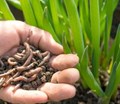
Those who love the future, especially farmers, need eco-friendly pesticides. This is what time proves. Agriculture is progressing in such a problematic manner. If we still do not love and cultivate nature, not only our future but also our health will be ruined. Organic farming was started as an alternative, but the threat to organic farming is the attack of pests.
These are the pesticides we apply to control pests. Time has shown that this is dangerous for both body and mind. It is in this context that neem oil should be considered. Spraying only neem oil and adding some powders can make an innovative pesticide that is not harmful to the body and nature. But in excess, it also destroys vegetables.
These plants should be treated with 10 ml of oil mixed with one litre of water. Five and ten ml of neem oil, two and a half grams of bar soap and one litre of water are required to make neem oil pesticide. First, the bar soap should be finely chopped in one litre of water. Add neem oil well. Then leave for eight hours and then apply to plants.
Kerosene paste
Kerosene is very effective in controlling water-drinking insects. The main ingredients are bar soap and kerosene. Finely chop 500 g of ordinary bar soap and dilute it slightly in four and a half litres of water. When the solution has cooled, add nine litres of kerosene and mix well. Add 15-20 times of water and spray on the plants.
Neem extract
Neem seed extract is effective in keeping stem borers and leafhoppers at bay. Soak 50 g neem seeds in a litre of water and soak for 12 hours. When it is watered, it gives 5 per cent strength.
Milk, cow urine and chilli mixture
Weeds can be effectively controlled with this pesticide. The solution can be prepared by diluting 20 g of milk in 5 litres of water. Pour 500 ml of cow urine in it and add 15 g of roasted chillies. This mixture can be filtered and used.
Peruvian diet
This mixture can be applied against scale insects, leafhoppers and worms found in vegetables. The flowers and leaves of the Peruvalam plant can be finely ground and mixed with 20 gm per litre of water and filtered and used for pest control.
Papaya leaves
Papaya leaf extract can be used to control leafhoppers. Dip 50 g papaya leaves in 100 ml water and soak overnight. Roast the leaves the next day and prepare the food. Sprinkle the above-prepared food 3-4 times with water.
Turmeric extract
This pesticide can be used to control lice and worms. Finely fry 20 g turmeric and mix it with 200 ml cow urine to make a mixture. The mixture can be diluted in two litres of water and sprayed.
















